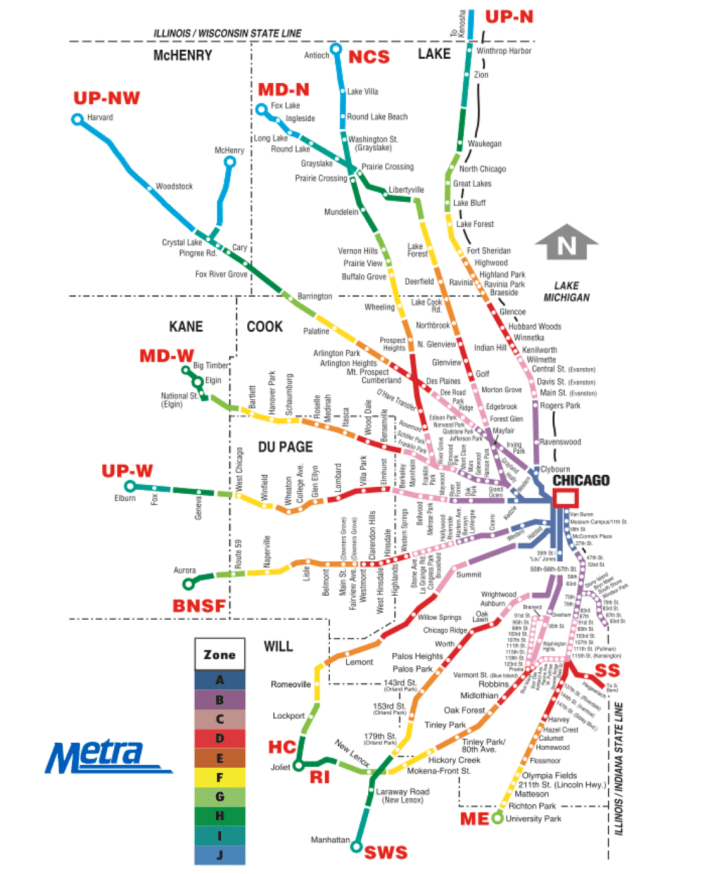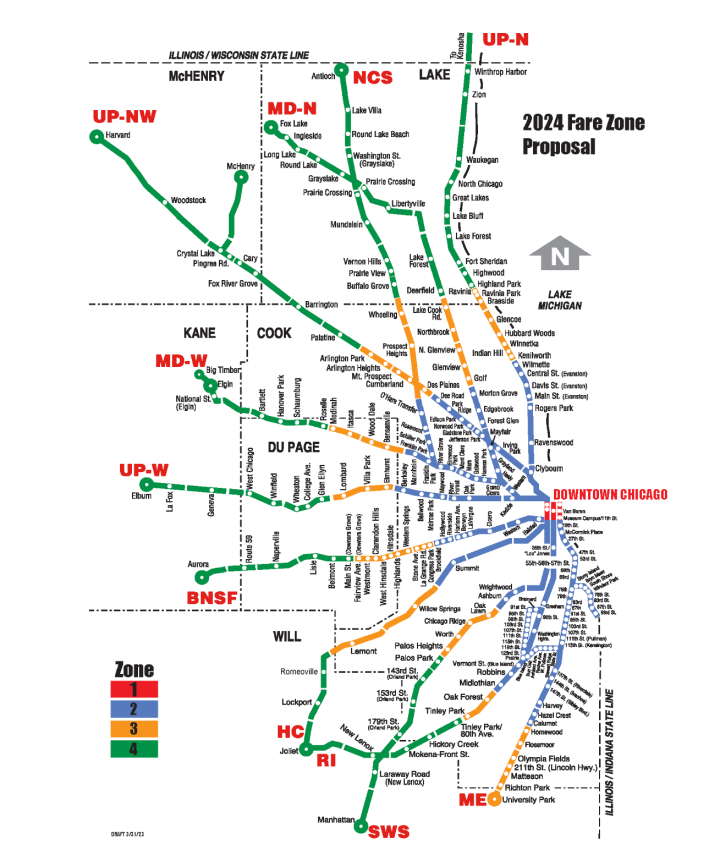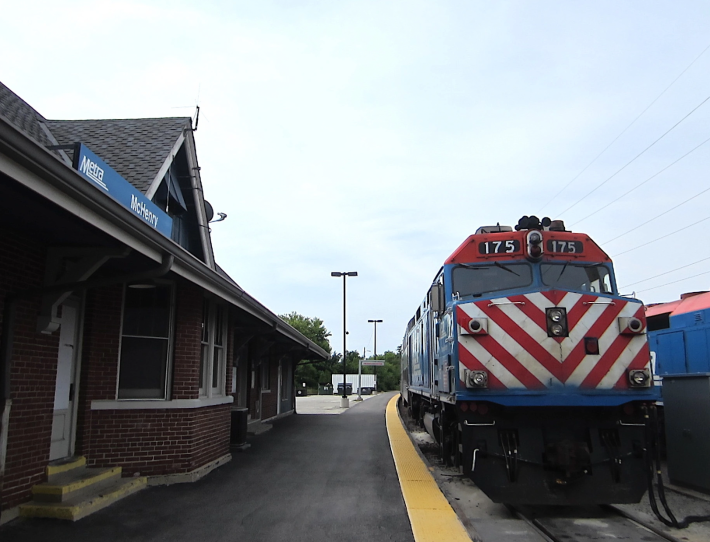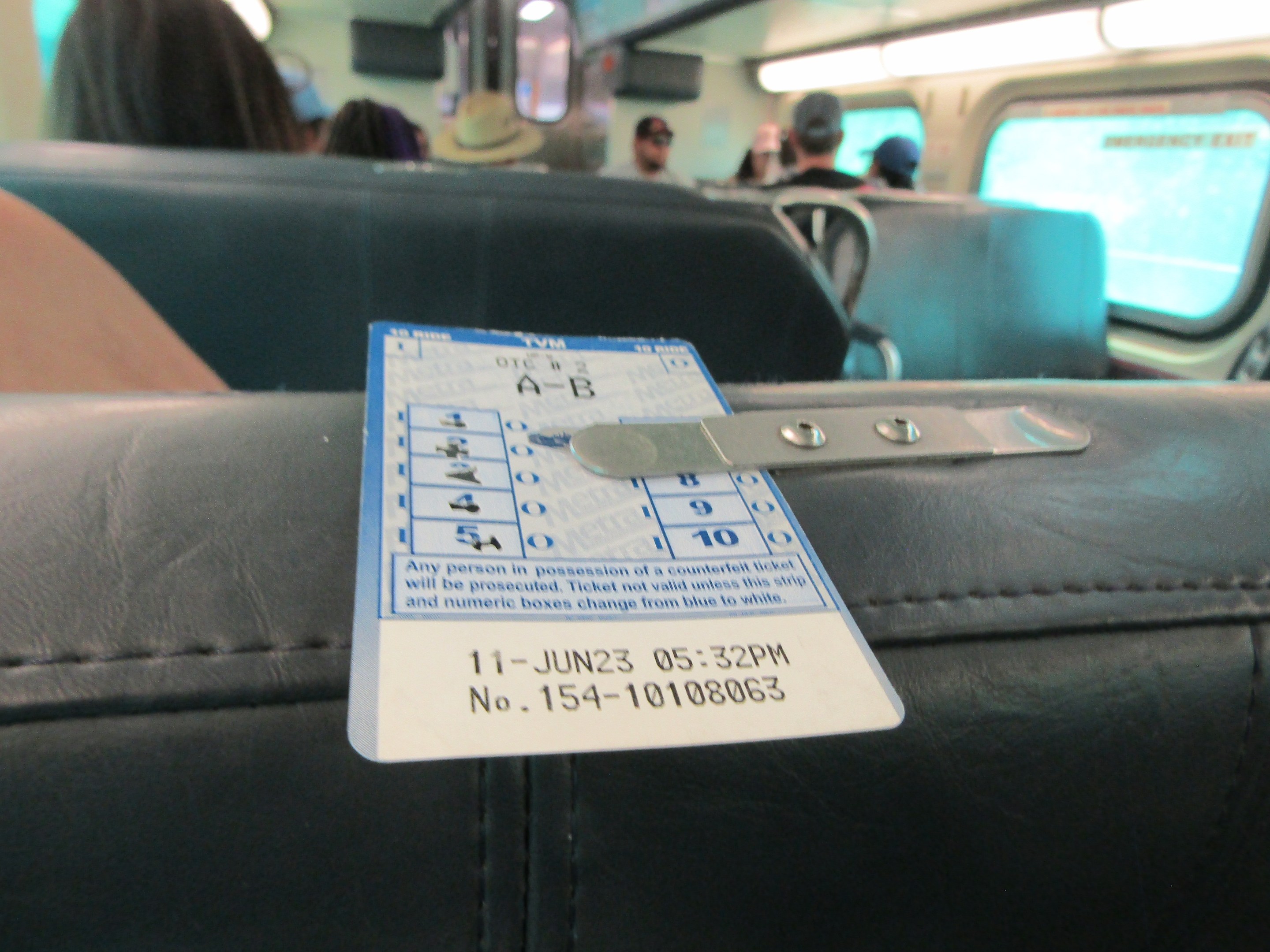Metra is proposing to significantly overhaul its fare structure next year, reducing the number of fare zones from ten to four, and creating a flat fare for trips outside the Loop. But the proposal also calls for getting rid of 10-ride tickets, and getting rid of three-zone daily passes and system-wide daily and monthly passes.
If the last two proposals sound like déjà vu, it’s because Metra proposed that last year, only to backtrack after backlash from Metra directors who represent the collar counties and suburban counties. Getting rid of the 10-ride tickets isn’t an entirely new idea either, but that one that hasn’t historically gotten far.
The motivation behind the proposal is the same as last year’s. Metra is proected to run out of stimulus funding by 2026, and, with ridership still below pre-COVID level, the railroad is trying to find the balance between attracing new riders and bring in new revenue.

Under the proposed new fare structure, Metra lines will be divided into four fare zones. Fare Zone 1 will include all the Loop terminals, plus the Metra Electric District line’s Van Buren and 11th Street/Museum campus stations. Fare Zone 2 would include the rest of Chicago and about half of the suburban Cook County stations, the ones closer to the city. Fare Zone 3 would include the rest of suburban Cook County, half of DuPage County, and handful of stations in Lake County. Fare Zone 4 would include the remaining Metra stations.

Under the proposed system, anyone traveling to or from Fare Zone 1 would pay more and more the further away they get, though the prices would be lower than the current fares for equivalent fare zones. For example, a one-way ticket from downtown Chicago’s Ogilvie Transportation Center to downtown Highland Park, which is currently in Fare Zone E, is $6.75. But the cost would be $5.50 when the Highland Park station moves to Fare Zone 3 under the new structure. The fare to travel within Fare Zones 2-to-4 would be the same as traveling from Fare Zone 1 to Fare Zone 2: $3.75.
The fare to travel within fare zones 2-4 would be the same as traveling from Fare Zone 1 to Fare Zone 2: $3.75. That discount would be especially noticeable for anyone traveling from the collar counties to Chicago stations outside the Loop.

According to Metra, the Fair Transit South Cook pilot, where all MED and Rock Island District line riders pay about half of the regular price, will still apply under the new fare structure for as long as the pilot lasts. The commuter railroad states that Cook County, Metra and Pace “are exploring ways to extend [the pilot] or replace it in some manner.”
The trade-off is that, like last year, Metra is proposing to eliminate both a popular $10 systemwide day pass and a $6 day pass that’s good for three specific fare zones, in favor of what’s basically a revived version of the former Round Trip Plus pass. That would cost the equivalent of two one-way tickets and the ticket holder would be locked to specific fare zones. Metra introduced the systemwide day pass and the Round Trip Plus pass during the summer of 2020, but the former proved to be more popular than the later, which caused the Round Trip Plus pass to be discontinued.
According to Metra's May 2023 ridership report, as of April 2023, 22 percent of all riders buy day passes, with 15 percent buying system-wide day passes.
Metra is also proposing to get rid of the system-wide $100 monthly pass, which account for 34 percent of the ridership share, with fare-based passes. Unlike last year’s proposal, which called for the monthly passes to cost the equivalent of 16 one-way tickets, this one would cost the same as 20 one-way tickets.
Similar to the previous proposal, this would be a price drop for riders in the city and parts of Cook County, who would pay $75, and keep the price the same for proposed Fare Zone 3. It would represent an increase for most collar-county riders. But the fact that riders who don’t go to the Loop would pay $75 across the board would be a sweetener.
Then, there’s the 10-ride ticket, which costs the equivalent of nine one-way tickets and good for 90 days from the date it was issued. The flexibility to use it within three months has been good for riders who may not ride frequently enough to justify a monthly pass, but for whom the cost of one-way tickets can add up. And the fact that the 10-ride ticket can be used by more than one person in a group has been good for families, and groups of friends. But those strengths are also drawbacks from Metra's perspective, since it means fewer people are paying and those that are pay less than they would with using one-way tickets.
Metra is proposing to replace 10-ride tickets with Ventra-only “Bundle of Five Day Passes.” These consist of five one-day passes that can be used on non-consecutive days and cost the equivalent of 9.5 one-way tickets.
According to Metra's May 2023 ridership report, 10-ride users currently account for 20 percent of the system's ridership.
The proposed fare structure addresses some of the feedback the staff got from directors representing the collar counties last year. It would reduce the number of fare zones and encourages suburb-to-suburb travel.
But the objections to getting rid of popular system-wide monthly passes and higher costs for collar counties haven’t quite been addressed. However, these increases aren’t as large for Kane, McHenry and Will counties as they were in last year’s proposal.
The new fare structure proposal is expected to go before the Metra board during its August 16 meeting. Metra is currently inviting riders to review the proposal and share the feedback.

Did you appreciate this post? Please consider making a tax-deductible donation.






